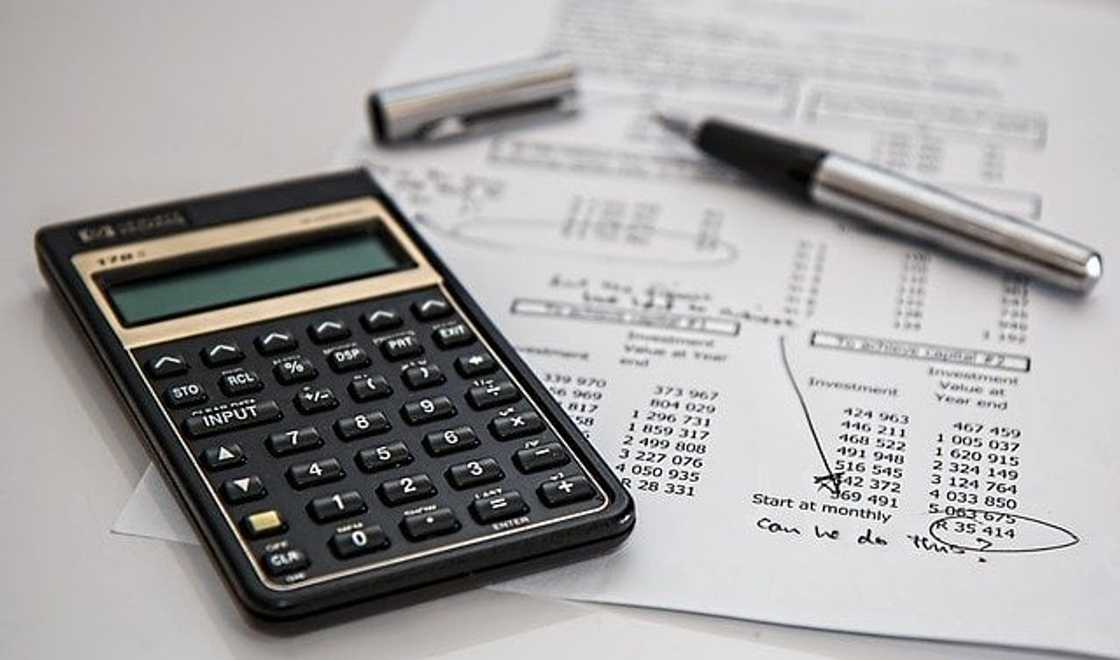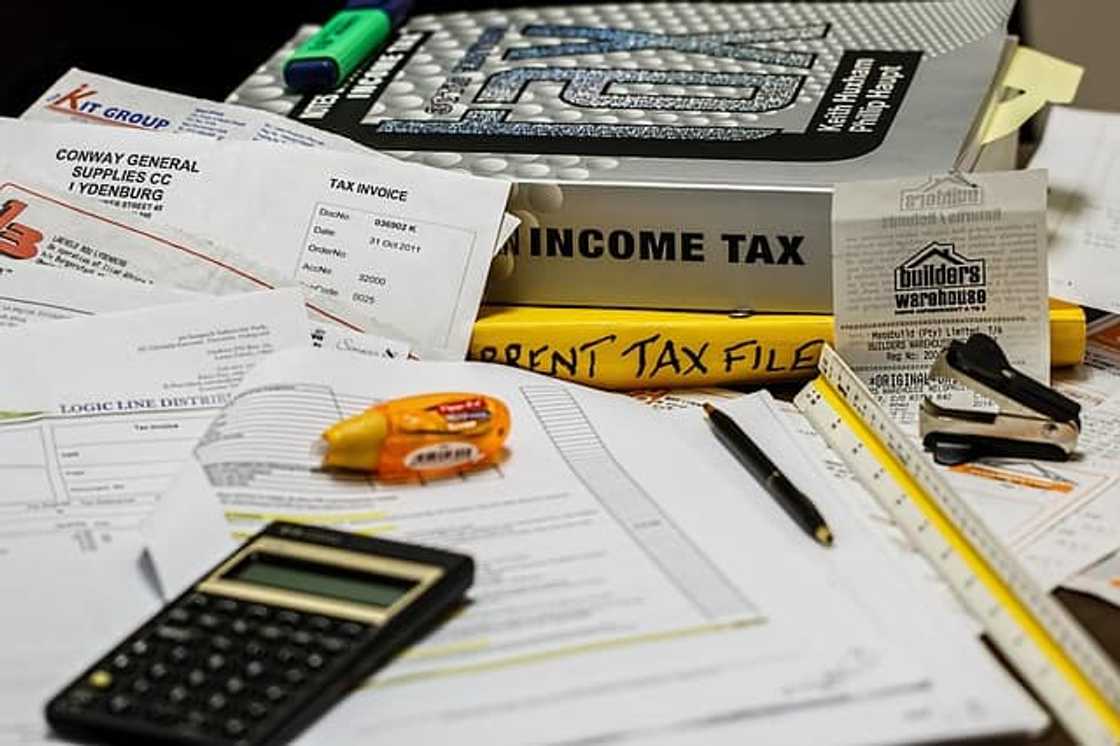Tax payer's update: Proposed tax brackets South Africa 2021
The South African taxpayer has been spared in the 2021 Budget as they will pay less in income taxes than it had earlier been feared. The decrease has been made possible by tax increments from mines and a faster recovery in VAT income. However, alcohol and tobacco consumers will suffer the most. Read on to discover the updated tax brackets in South Africa 2021.

Source: UGC
In June 2020, tax increases had been proposed for the special adjustments budget, but Finance Minister Tito Mboweni revealed on 24th February 2021 that they had been withdrawn. The decision came after the revenue performance for the second half of 2020/21 was higher than anticipated.
What are tax brackets for 2021 South Africa?
Tax payment is the civic duty of every income earner. With proper knowledge of taxation, employees and self-employed persons can know if they should pay the tariff. More importantly, they will know the amount they are to pay annually. What are tax brackets in South Africa?
Personal income tax
Individual taxpayers in South Africa have a reason to celebrate after the SARS proposed an average increase of 5% on personal income tax brackets. The average is above inflation, and this means that the individuals will incur less in income tax compared with 2020.
Tax relief will be R2.2 billion. This means that citizens who earn less, including the lower and middle-income earners, will have less tax burdens and more reliefs.
SARS also revealed that they will identify wealthy citizens and those with complex financial arrangements to enhance compliance in tax payments.
The new tax tables 2021 show the expected income tax payments for the individuals and trusts from 1st March 2021 to 28th February 2022.
Corporate income tax
Companies with years of assessment will have to pay 27% corporate income tax, a decrease from the current rate of 28%. The rate is still higher than the global average of 23.6%. The new business tax brackets South Africa will be effective from 1st April 2022.
VAT
The current rate will not be changed, and consumers will pay a 15% rate. However, the superfine maize meal is now under the VAT zero-rated list.
Fuel levies
The levies will be hiked by 15 cents per litre, effective 7 April 2021. The increase is lower than what tax analysts had anticipated. There will also be a higher-than-inflation increase of 11 cents per litre on the Road Accident Fund levy.
Sin taxes
Consumers of alcohol and tobacco will be hit hard by the new changes. The rate will be increased by 8%, which is twice the inflation rate. Some of the changes are as follows.
- Beer: From 181 cents on a 340ml can to 196 cents
- Wine: From R4.39 a litre to R4.74
- Fortified wine: From R7.34 a litre to R7.92
- Sparkling wine: From R14.36 a litre to R15.51
- Ciders and alcoholic fruit beverages: From 181 cents on a 340ml can to 196 cents
- Spirits: From R68.73 a bottle to R74.23
- Traditional African beer: Unchanged at 7.82 cents for litre
- Cigarettes: From R17.40 for a pack of 20 to R18.79
- Vaping and other heated tobacco products: Unchanged at 75%
Green plastic bags taxation
These were not taxed in the past, but there will be an introduction of 12.5 cents per bag. The government argued that bioplastic bags are still polluting the environment. Taxation on plastic bags remains at 25 cents per bag.
Section 12J tax breaks
The treasury said that the section will not be applicable effective June 30th. Section 12J had been created to encourage SA citizens to make investments in small and riskier businesses to enable job creation and boost economic growth. The treasury revealed that the scheme had not yielded the anticipated results.

Source: Twitter
How do I calculate my tax bracket South Africa?
Get your taxable income by subtracting any deductions, adjustments, and exemptions from the gross salary. This will help you know the tax bracket you are in.
You can then use various applications available to determine tax payable. The most common tax brackets South Africa calculators include Sage and QuickBooks applications.
How much can you earn before you have to pay 40% tax?
According to the South African tax brackets 2021, an individual pays a 41% tax rate when their taxable income is above R782,200. The rate is applicable for amounts between R782, 201.00 and R1, 656, 600.00
How do tax brackets work in South Africa?
The South African government, like many countries in the world, charges an income pecuniary levy on the residents of the country. The system is designed in a way that some foreigners are not made to overpay, and at the same time, they enjoy exemptions and allowable deductions as the case may be.
The residency-based taxation system that the country operates is such that residents are charged based on worldwide income, while those who are non-resident pay based on their South African-sourced income. Those who fall into the category of residents are those who possess a residence or citizenship permit. The SARS tax tables 2020 show the tariff rates for different categories of salary earners. South Africa tax brackets indicate the different levy rates based on groups and ages.
However, for tax purposes, a person can be considered as a resident if such has, in the last five tax years, lived in the country for over ninety-one days in total. The other option is if the person has lived for not less than 915 days of those five years in South Africa. It is the responsibility of SARS to collect levy in South Africa. Residents who work in South Africa are required to get an income tax number. This will enable them to submit an annual tariff return.
At what salary do I pay tax in South Africa?
Based on the SARS income tax tables, any individual or business organisation, whose income falls under any of the following categories, is expected to pay an income levy:
- Income from a pension from what comes from abroad;
- Gains or losses made as an entrepreneur;
- Rental income;
- All forms of salary, bonuses, and taxable allowances made as an employee;
- Royalties;
- A few capital gains;
- Accumulated income from investment, which can be dividends or interest-based;
- Annuities.
Note that irrespective of the amount involved, as long as the earnings fall within the categories mentioned above, the person will pay.

Source: UGC
What income is exempt from tax in South Africa?
The system is designed in a way that any person who is above the age of 65 years and any amount made that is not up to R23,800 per annum would be exempted from an income levy. At the same time, any person who is more than 65 years of age and makes as much as R34,500 in a year in South Africa will also enjoy an exemption.
In the same vein, non-residents who are not physically present in South Africa for a minimum of 183 days in a year before there is an accruement in their interest will be exempted from paying any income tariff. But then, it should be noted that the exemption can only be possible if the interest-bearing debt has no valid connection to a specified place of business within the country.
Do you pay tax on dividends in South Africa?
Anybody who receives dividends from South African companies will not pay income but dividends tariff, which is a 20% rate withheld by entities that pay dividends to individuals. However, South African residents who receive bonuses from companies that are listed and have their properties regulated (REITs) are subjected to paying a levy.
Moreover, any shareholding bonuses that are not up to 10% that people receive from foreign companies will be taxed at the rate of 20% maximum. Additionally, deductions are not permitted for expenditure to produce foreign dividends.
The latest tax brackets South Africa released are all-encompassing, and it is explicit enough to encourage everyone within the bracket to carry out their civic duties. However, in case you need anything clarified as touching the payment, you can visit any office of the South African Revenue Service (SARS) that is close to you.
READ ALSO: SARS eFiling 2020: Steps on how to submit tax return on eFiling and SARS MobiApp
Briefly.co.za had earlier highlighted how South African taxpayers can file their returns. The process is now done online on eFiling and SARS MobiApp thanks to technological developments.
The South African Revenue Service eFilling is mandatory for every tax paper. You must therefore master the process to ensure you submit tax returns and declarations on time. Find out how it is done from the steps highlighted in the article.
DISCLAIMER: This article is intended for general informational purposes only and does not address individual circumstances. It is not a substitute for professional advice or help and should not be relied on to make decisions of any kind. Any action you take upon the information presented in this article is strictly at your own risk and responsibility!
Source: Briefly News








